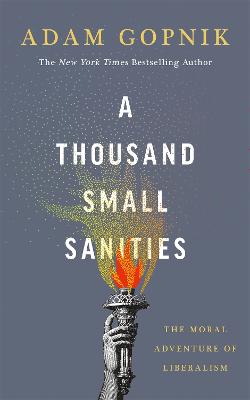Reviewed by Jeff Sexton on
On the actual arguments in question, again, I believe he is arguing more for (mostly) what an American audience would more readily understand as "libertarianism" - Rule of Law, equality of opportunity no matter one's demographics, and a strong commitment to the freedom of speech. Yes, he goes off on leftist/ progressive tangents such as gun control and universal healthcare at times, but the author does a pretty solid job of always coming back to the central thesis, and showing how both the "left" and "right" in most countries (but particularly the US) both hate what he calls "liberalism" and why both camps are wrong. I could probably write a book concurring in conclusion but dissenting in approach myself, particularly over Gopnik's obsession with John Stuart Mill and On Liberty - a book I myself read just a couple of years ago and found useful to the overall conversation, but ultimately problematic.
Still, as with Mills' book - a conjoining the author will likely appreciate - this text serves as a solid look at a particular way of thinking and is thus worthy of consideration. Recommended.
Reading updates
- Started reading
- 20 June, 2020: Finished reading
- 20 June, 2020: Reviewed
